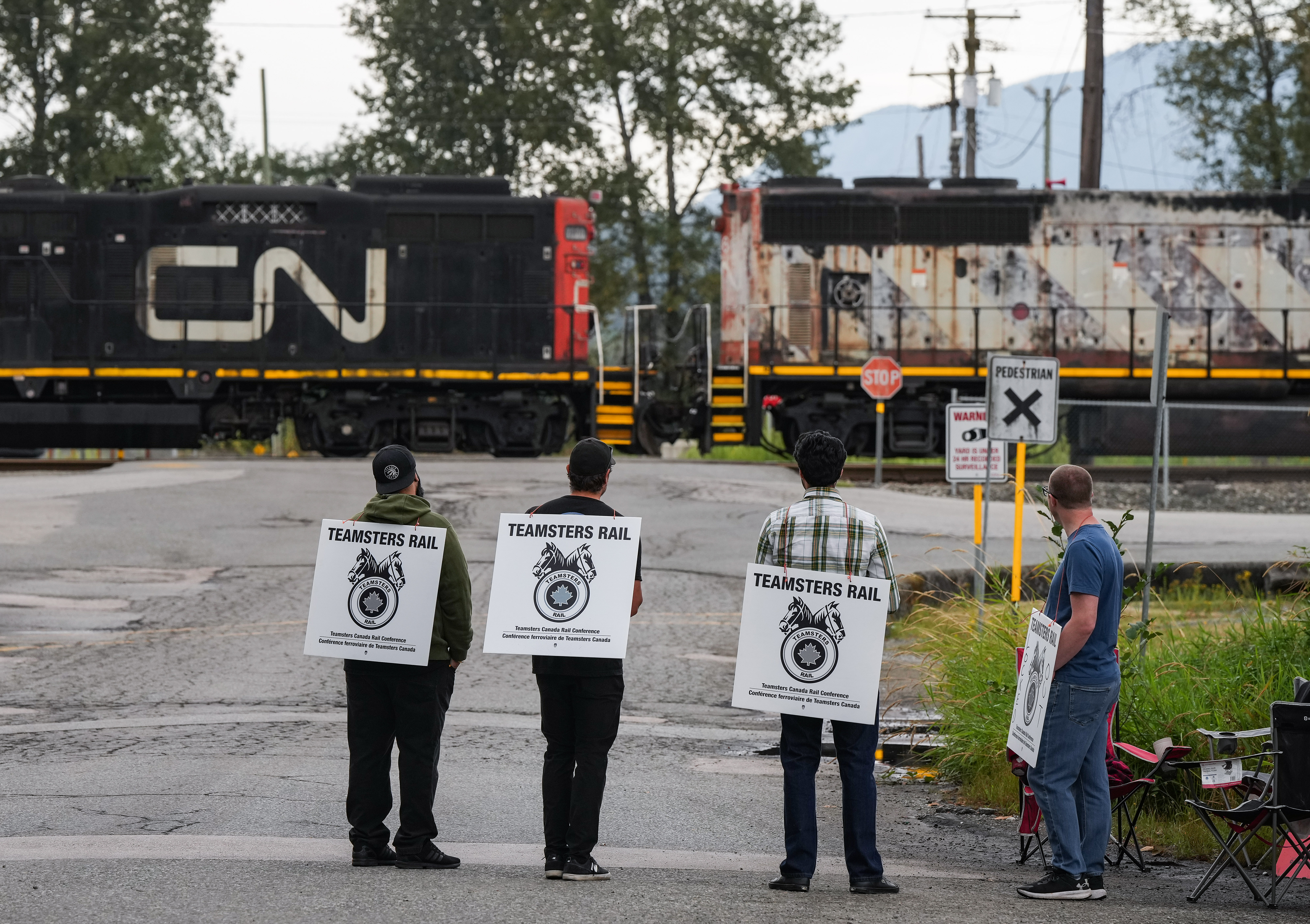
Teamsters Issue 72-Hour Strike Notice to CN Rail Amid Ongoing Labour Dispute
The labour dispute between Teamsters Canada Rail Conference (TCRC) and Canadian National Railway (CN) has reached a critical juncture. On Friday, the Teamsters served CN Rail with a 72-hour strike notice, set to take effect Monday at 10 a.m. Eastern Time. This decision follows a tumultuous period of negotiations and labour actions involving both CN Rail and Canadian Pacific Kansas City (CPKC), Canada’s two largest railways.
The Teamsters' move comes in the wake of CN Rail's recent announcement that it was lifting a lockout imposed earlier this week. This action was a response to the federal government’s intervention, specifically the Canada Industrial Relations Board (CIRB) order for binding arbitration to resolve the dispute. The union's response highlights a deep frustration with what it perceives as a sidestepping of collective bargaining processes. TCRC President Paul Boucher criticized the federal government’s intervention, arguing that it undermines the union's ability to negotiate fair wages and working conditions. Boucher emphasized that arbitration could severely affect rail safety and worker rights, areas the union believes are crucial for the well-being of all Canadians.
Also Read:- Gladys Berejiklian Missing from Sydney Metro Opening Amidst Record-Breaking Ridership
- Pavel Durov Detained at Paris Airport Amid Controversy
In a statement, CN Rail defended its position, noting that the company had been working to address the issues raised and was committed to resuming normal operations as soon as possible. Despite CN’s efforts to return to regular service and its criticisms of the union’s stance, the Teamsters remain resolute. They argue that the binding arbitration imposed by the CIRB threatens the foundation of labour negotiations and dismisses the union's concerns about worker fatigue, rest periods, and forced relocations.
This strike notice adds to the already complex landscape of the rail dispute, which has seen simultaneous work stoppages at CN and CPKC. Earlier, workers at CPKC had already begun striking, leading to significant disruptions across the rail network. The situation prompted Labour Minister Steven MacKinnon to invoke Section 107 of the Canada Labour Code, aiming to restore service and bring both parties back to the negotiating table under binding arbitration.
The federal intervention and the subsequent strike notice have sparked a broader debate about the balance between workers' rights and economic stability. Critics of the Teamsters' latest move, including the Canadian Chamber of Commerce and industry leaders, argue that continued disruptions will only exacerbate economic challenges and harm various sectors reliant on rail services. Conversely, the Teamsters and their supporters argue that binding arbitration could erode hard-won labour rights and set a troubling precedent for future disputes.
As the deadline for the strike approaches, the situation remains fluid. The CIRB's eventual ruling and the union's next steps will be closely watched, as they will determine whether further labour actions will occur and how quickly the railways can return to full operation. The outcome of this dispute will likely have far-reaching implications for Canadian labour relations and the broader economy.
Read More:

0 Comments